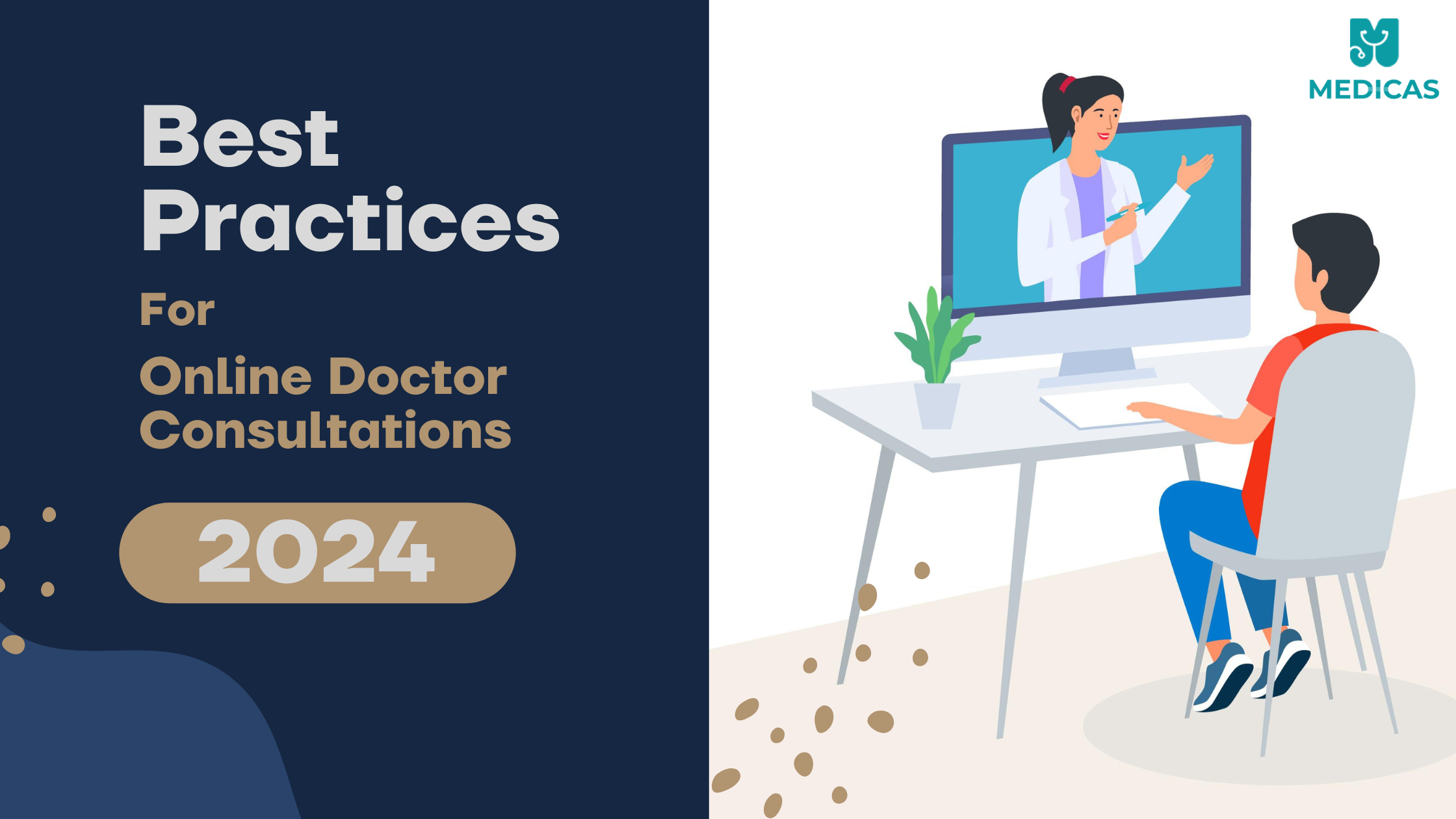In today’s fast-paced world, where time is of the essence and convenience is paramount, online doctor consultation platforms have emerged as a game-changer in the healthcare industry. These platforms offer patients the flexibility to seek medical advice, obtain prescriptions, and manage their health from the comfort of their homes or while on the go. As we step into 2024, the landscape of digital healthcare continues to evolve, presenting patients with a myriad of options for accessing medical care online. However, to make the most of these platforms and ensure a positive healthcare experience, patients must understand and embrace best practices tailored to the digital healthcare landscape of 2024.
How to Select an Online Doctor Consultation Platform?
- Choosing the Right Platform: The first step in leveraging online doctor consultation platforms effectively is choosing the right platform. With a plethora of options available, patients should prioritize platforms that are reputable, accredited, and compliant with regulatory standards. Look for platforms that employ licensed healthcare providers, offer secure communication channels, and prioritize patient privacy and confidentiality. Conduct thorough research and read reviews to ensure that the platform meets your specific healthcare needs and preferences.
- Verification of Credentials: Once you’ve selected a platform, it’s essential to verify the credentials and qualifications of the healthcare providers available on the platform. Ensure that the healthcare providers are licensed to practice medicine in your jurisdiction and possess expertise in the relevant field of healthcare. Look for indicators of professional affiliations, certifications, and years of experience to gauge the provider’s credibility and competence.
- Providing Accurate Medical History: To facilitate comprehensive care and accurate diagnosis, provide detailed information about your medical history during the consultation process. Include information about past illnesses, chronic conditions, medications, allergies, and any recent diagnostic tests or procedures. Providing an accurate medical history enables healthcare providers to make informed decisions and tailor treatment plans to your individual needs.
- Preparation for the Consultation: Before the consultation, take the time to prepare a list of symptoms, concerns, and questions you wish to discuss with the healthcare provider. Organize your thoughts and prioritize the most pressing issues to ensure that you make the most of the consultation time. Having a prepared list helps streamline the consultation process and ensures that all relevant topics are addressed.
- Ensuring a Secure Environment: Conduct online consultations in a secure and private environment free from distractions. Choose a quiet and secluded location where you can have a confidential conversation with the healthcare provider without interruptions. Ensure that your internet connection is secure and stable to facilitate smooth communication and minimize the risk of technical glitches.
- Active Participation and Communication: Actively participate in the consultation by asking questions, seeking clarification, and expressing any concerns or preferences you may have regarding your healthcare. Clear and open communication fosters mutual understanding and enables collaborative decision-making between you and the healthcare provider. Don’t hesitate to voice your opinions or ask for further explanations if something is unclear.
- Adherence to Treatment Recommendations: After the consultation, adhere to the treatment recommendations provided by the healthcare provider. This may include medication regimens, lifestyle modifications, follow-up appointments, or referrals to specialists. Consistency and compliance with treatment plans are essential for achieving optimal health outcomes and managing chronic conditions effectively.
- Providing Feedback for Improvement: Take the time to provide feedback on your experience with the online doctor consultation platform after the consultation. Share your thoughts on the user interface, communication quality, and overall satisfaction to help improve the platform for future users. Your feedback is valuable in identifying areas for improvement and enhancing the patient experience.
- Staying Informed and Engaged: Stay informed about advancements in digital healthcare and emerging best practices for utilizing online doctor consultation platforms. Engage in patient education initiatives and take an active role in managing your health and well-being. Stay abreast of changes in healthcare policies, regulations, and technological innovations to make informed decisions about your healthcare options.
- Seeking Emergency Care When Necessary: While online doctor consultation platforms offer convenience for non-emergency medical issues, it’s important to recognize the limitations of virtual healthcare and seek emergency care for urgent or life-threatening conditions. Know when to escalate concerns and access traditional healthcare services for immediate medical attention.
Conclusion
In conclusion, by embracing these best practices, patients can empower themselves to make the most of online doctor consultation platforms in 2024. By taking an active role in their healthcare journey, patients can access timely, convenient, and high-quality medical care, ultimately enhancing their overall health and well-being in the digital age.
Other Healthcare Blogs:
Healthcare at Your Fingertips: The Advantages of Instant Online Doctor Consultation Services
Navigating Women’s Health Concerns: How Online Consultation Can Help
Debunking Myths About Online Doctor Consultations
Online Doctor Consultation vs. Traditional Healthcare: Understanding the Differences
Disclaimer:
Medical Advice: The information provided in this blog post is for educational purposes only and should not be considered as a substitute for professional medical advice, diagnosis, or treatment. Always consult with a qualified healthcare professional for personalized guidance regarding your specific medical condition.
Accuracy of Information: While we strive to provide accurate and up-to-date information, the field of medicine and viral fevers is constantly evolving. The content in this blog post may not reflect the most current research or medical guidelines. Therefore, it is advisable to cross-check any information provided with reliable sources or consult a healthcare professional.
Individual Variations: The symptoms, causes, treatment options, and preventive measures discussed in this blog post are general in nature and may not apply to everyone. It is important to remember that each individual’s situation is unique, and personalized medical advice should be sought when making healthcare decisions.
External Links: This blog post may contain links to external websites or resources for additional information. However, we do not endorse or have control over the content of these third-party websites. Accessing these links is done at your own risk, and we are not responsible for any consequences or damages that may arise from visiting these external sources.
Results May Vary: The effectiveness of treatment options or preventive measures mentioned in this blog post may vary from person to person. What works for one individual may not work the same way for another. It is essential to consult with a healthcare professional for personalized advice tailored to your specific needs.



